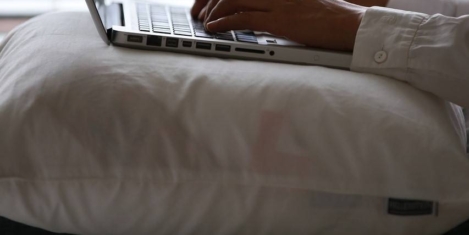June 12, 2018
Pay rates for senior management reflect longer working hours argues CMI
 Business Secretary Greg Clark proposed new laws in Parliament yesterday (June 11th) that new large firms will have to justify their chief executives’ salaries and reveal the gap to their average UK worker. It means that for the first time, UK listed companies with more than 250 UK employees will have to disclose and explain this difference – known as ‘pay ratios’ – every year. However, according to data published today by the Chartered Management Institute (CMI) and XpertHR, basic salaries for senior managers have fallen in real terms, with inflation overtaking pay increases for the first time in five years. At a time when government are shining a light on executive pay, and linking it via a ratio to workforce pay, separate CMI research has found managers worked an extra 44 days a year last year over and above their contracted hours – up from 40 days extra in 2015. The same research found 59 percent of managers are ‘always on’, frequently checking their emails outside of work and one in 10 had been forced to take sick leave because of stress.
Business Secretary Greg Clark proposed new laws in Parliament yesterday (June 11th) that new large firms will have to justify their chief executives’ salaries and reveal the gap to their average UK worker. It means that for the first time, UK listed companies with more than 250 UK employees will have to disclose and explain this difference – known as ‘pay ratios’ – every year. However, according to data published today by the Chartered Management Institute (CMI) and XpertHR, basic salaries for senior managers have fallen in real terms, with inflation overtaking pay increases for the first time in five years. At a time when government are shining a light on executive pay, and linking it via a ratio to workforce pay, separate CMI research has found managers worked an extra 44 days a year last year over and above their contracted hours – up from 40 days extra in 2015. The same research found 59 percent of managers are ‘always on’, frequently checking their emails outside of work and one in 10 had been forced to take sick leave because of stress.









 One in 10 women blame workplace banter for causing mental health issues and are twice as likely as men to have been negatively affected by workplace banter, according to a new report by The Institute of Leadership & Management. Banter: Just a bit of fun or crossing the line? found that more women (twice as many at 20 percent) were made to feel less confident than their male colleagues due to the negative banter they experienced and 10 percent of women said banter has had a negative impact on their mental health, compared to just three percent of men. The survey also revealed that those at the mid-way point in their careers (31-40 years) are most affected by banter. This age group reported loss in confidence, drops in performance and poor mental health due to experiencing negative banter. They also said they avoided work situations and skipped work socials. The findings showed that over a third of graduate trainees have been left embarrassed by banter and people (over 1 in 4) in their first job are more likely to avoid work socials than any other group as a result of banter.
One in 10 women blame workplace banter for causing mental health issues and are twice as likely as men to have been negatively affected by workplace banter, according to a new report by The Institute of Leadership & Management. Banter: Just a bit of fun or crossing the line? found that more women (twice as many at 20 percent) were made to feel less confident than their male colleagues due to the negative banter they experienced and 10 percent of women said banter has had a negative impact on their mental health, compared to just three percent of men. The survey also revealed that those at the mid-way point in their careers (31-40 years) are most affected by banter. This age group reported loss in confidence, drops in performance and poor mental health due to experiencing negative banter. They also said they avoided work situations and skipped work socials. The findings showed that over a third of graduate trainees have been left embarrassed by banter and people (over 1 in 4) in their first job are more likely to avoid work socials than any other group as a result of banter.
 As employment levels rise, employers are facing stronger competition to attract and retain staff. Now the latest research suggests there is an escalation in the ‘war for talent’, as nine out of 10 new hires admit they would leave a job that fails to meet expectations within a month. According to research commissioned by Robert Half of 9,000 candidates in 11 countries across four continents, nearly half (47 percent) admit they decide whether they would or wouldn’t accept a position straight after the initial meeting. Highlighting that first impressions count, a further one fifth (20 percent) know if they are interested after the first communication (call/email), while 17 percent typically decide within the first five minutes of the interview. Less than one in 10 (9 percent) wait until they have completed subsequent interviews to decide and merely 7 percent decide during contractual negotiations. Even once candidates have accepted a role, 91 percent admit they would consider leaving a job within their first month and 93 percent during their probation period.
As employment levels rise, employers are facing stronger competition to attract and retain staff. Now the latest research suggests there is an escalation in the ‘war for talent’, as nine out of 10 new hires admit they would leave a job that fails to meet expectations within a month. According to research commissioned by Robert Half of 9,000 candidates in 11 countries across four continents, nearly half (47 percent) admit they decide whether they would or wouldn’t accept a position straight after the initial meeting. Highlighting that first impressions count, a further one fifth (20 percent) know if they are interested after the first communication (call/email), while 17 percent typically decide within the first five minutes of the interview. Less than one in 10 (9 percent) wait until they have completed subsequent interviews to decide and merely 7 percent decide during contractual negotiations. Even once candidates have accepted a role, 91 percent admit they would consider leaving a job within their first month and 93 percent during their probation period.






 More than 6 million UK adults are already self-employed or working as a contractor in the so-called gig economy, with a further 6 percent of currently full-time professionals looking to make the transition this year. New research of more than 2,000 UK adults commissioned by
More than 6 million UK adults are already self-employed or working as a contractor in the so-called gig economy, with a further 6 percent of currently full-time professionals looking to make the transition this year. New research of more than 2,000 UK adults commissioned by 








 One in four workers (28 percent) would move jobs if they weren’t allowed to work from home, increasing to nearly half (45 percent) of millennial workers. Yet while two thirds of UK employees (65 percent) can work from home, 35 percent are still not given the option of working remotely.
One in four workers (28 percent) would move jobs if they weren’t allowed to work from home, increasing to nearly half (45 percent) of millennial workers. Yet while two thirds of UK employees (65 percent) can work from home, 35 percent are still not given the option of working remotely. 







